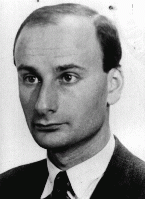You searched for: 澳门威尼斯人网址【手动输入∶___bet126.net___】最新地址请收藏,澳门威尼斯人网址是多少,澳门威尼斯人全部网址,澳门新威尼斯人的网址,澳门威尼斯人网址玩法,澳门威尼斯人网址44,澳门威尼斯人开户网址。
<< Previous | Displaying results 351-375 of 430 for "澳门威尼斯人网址【手动输入∶___bet126.net___】最新地址请收藏,澳门威尼斯人网址是多少,澳门威尼斯人全部网址,澳门新威尼斯人的网址,澳门威尼斯人网址玩法,澳门威尼斯人网址44,澳门威尼斯人开户网址。" | Next >>
-
Iosif Kirzhner
ID CardIosif was the second of four boys born to a Jewish family in the southern Ukrainian port of Odessa, a city with the largest Jewish community in the Soviet Union before World War II. Iosif's father worked as a hat maker, while his mother raised the family. 1933-39: In 1936 Iosif joined the Red Army and was trained to drive a tank. After Germany invaded Poland on September 1, 1939, the Soviet Union took advantage of its nonaggression pact with the Germans to claim Finnish territory. The Finns resisted them…
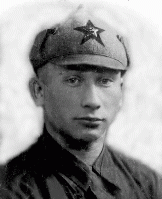
-
Semyon Menyuk
ID CardSemyon was born to a Jewish family in the small village of Komarovo in Polish Ukraine. His parents were farmers and tended their own fields while managing the estate of a Polish landowner who lived in Warsaw. Of the estimated 200 families living in Komarovo, only five were Jewish. 1933-39: Since there was no Jewish school in their town, Semyon's parents sent him to the nearby city of Sarny to study. He finished school in 1938 and returned to Komarovo to help his parents with their farm. But in September…
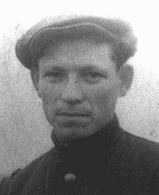
-
Hetty d'Ancona
ID CardHetty was the only child of a middle-class secular Jewish family. Hetty's parents were Sephardic, the descendants of Jews who had been expelled from Spain in 1492. The family lived in an apartment above her father's clothing business. Hetty's grandparents and other relatives lived nearby. 1933-39: Hetty enjoyed growing up in the Netherlands. Her Jewish neighborhood was in the older part of Amsterdam, in the city center. When she was 6 years old, she began attending a public school. Everywhere in Amsterdam…
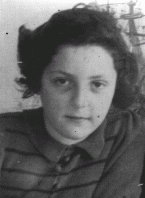
-
Dorotka Goldstein
ID CardDorotka was the youngest of three children in a Jewish family. Her father was the director of the Jewish Telegraphic Agency in Warsaw and worked for a popular newspaper. An avid Zionist, he had traveled to Palestine. 1933-39: Dorotka's father established a soup kitchen in Warsaw for Jewish refugees who had fled from Germany. In September 1939 Dorotka was supposed to begin first grade when war broke out. Her father escaped to Vilna with other Jewish leaders. People were suffering, but she didn't understand…
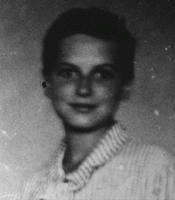
-
Laura Litwak
ID CardLaura was the second of five children born to religious Jewish parents in the industrial city of Lvov. She was often called affectionately by her nickname, Lorka. Coming from an educated family living in a multi-ethnic part of Poland, she grew up speaking Polish, Russian, German and Yiddish. As a young woman, she earned a humanities degree from St. Nicholas University in Lvov. 1933-39: In April 1935 Laura became Mrs. Daniel Schwarzwald. Her husband was a successful lumber exporter, and they lived in a…
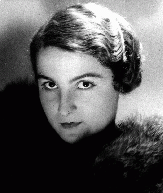
-
Selma Schwarzwald
ID CardBoth of Selma's Jewish parents, Daniel Schwarzwald and Laura Litwak, had been raised in the industrial city of Lvov. As many different nationalities lived in Lvov, Selma's mother and father could speak many languages--Polish, Russian, German and Yiddish. In running his successful lumber business, Daniel also occasionally used English. 1933-39: Selma's parents married in April 1935 and she was born two years later. Her father was afraid that there might be a war and wanted to move the family to safety in…
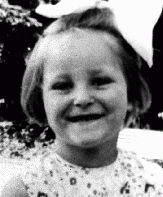
-
Max Diamant (now Josef Burzminski)
ID CardMax was born to a Jewish family in the Austrian capital of Vienna. When he was a small child his family moved to Przemysl, an urban center in southeastern Poland with a largely Jewish population. Max spent the remainder of his childhood there; his parents ran a small grocery and cafeteria to support their five children. 1933-39: The Germans reached Przemysl on September 14, 1939. It was a brilliant sunny day when planes suddenly appeared; Max's family thought the planes were their own until they began…
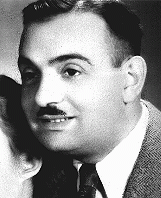
-
Chaie Sura Kisielnicki
ID CardChaie Sura was the youngest of three children born to Jewish parents living 35 miles east of Warsaw in the small, predominantly Jewish town of Kaluszyn. Her father owned a wholesale grocery store, a restaurant and a gas station, which were located together on the busy main road. The Kisielnicki family lived in rooms in the same building as their business. 1933-39: When Germany invaded Poland several days ago, Chaie Sura's father and brothers fled eastward towards the USSR with other Jewish men who were…
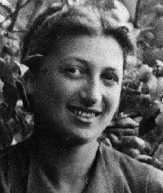
-
Abram Kisielnicki
ID CardThe oldest of three children, Abram was born to Jewish parents in the small, predominantly Jewish town of Kaluszyn, 35 miles east of Warsaw. Abram's father owned a wholesale grocery store, a restaurant and a gas station, all of which were located on the heavily traveled main road. Abram went to public elementary school and also received religious instruction. 1933-39: Abram was 21 when the Germans invaded Poland. Abram, his father, and his brother Majlech fled eastward towards the Soviet Union because…
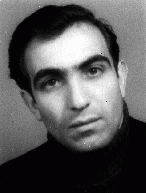
-
Majlech Kisielnicki
ID CardThe second of three children, Majlech was born to Jewish parents living 35 miles east of Warsaw in the small, predominantly Jewish town of Kaluszyn. Majlech's father owned a wholesale grocery store, a restaurant and a gas station, all of which were located on the heavily traveled main road. Majlech attended public elementary school and also received religious instruction. 1933-39: Majlech and his pals, Mindele, Sara and Adam loved to discuss politics. They'd heard the Polish propaganda claiming that…
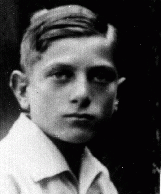
-
Ezra BenGershom
ID CardEzra was born to a Jewish family in the Bavarian city of Wurzburg. In the summer of 1929, his father, a third-generation rabbi, accepted a position as a district rabbi, guiding 12 congregations in Upper Silesia. In primary school, Ezra, who showed a keen interest in chemistry, was often harassed by his schoolmates for being Jewish. 1933-39: Because of his "Nordic" features, Ezra was able to frequent places where Jews couldn't go. In 1938, one year after he entered a Jewish secondary school in Berlin, the…
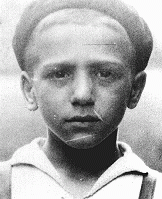
-
Frederic Bernard
ID CardFrederic was born to a Jewish family in Czernowitz (Chernovtsy). His father was head clerk in a lawyer's office and his mother was a pianist. Frederic's parents were active in Czernowitz's sizable Jewish community. In 1930 Frederic began medical studies at the German University in Prague, Czechoslovakia. 1933-39: Frederic left Prague in 1933. He went to France and then Italy to finish his studies and graduated in 1936. He wanted to leave Europe to escape Hitler and tried to do so by applying to the…
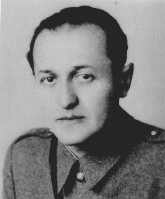
-
Johanna Falkenstein Heumann
ID CardThe oldest of five children, Johanna was born to Jewish parents living in a small town near Cologne. Her father owned a cigar factory. After Johanna graduated from high school, she worked in a bank in Cologne. At 22 she married Carl Heumann and the couple settled in the village of Hellenthal near the Belgian border. There they owned a general store. The couple had two daughters, Margot and Lore. 1933-39: A year ago Johanna's family moved to nearby Bielefeld, and she enrolled Margot and Lore in the city's…
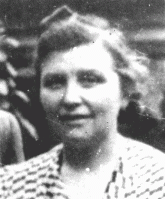
-
Josef Malnik
ID CardRaised in a Jewish family, Josef lived with his wife, Feiga, in Kovno, a cosmopolitan city that was picturesquely situated at the juncture of two rivers and was known as the "Little Paris." Josef was a barber, his wife was a beautician, and together they ran a shop in downtown Kovno. 1933-39: Every day Josef and Feiga walk to their shop which is not far from their house. It's hard work being a barber--Josef is on his feet most of the day, seven days a week including a couple of hours on Sunday. He has…
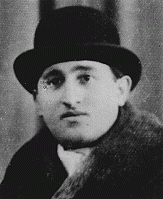
-
Margot Heumann
ID CardThe older of two girls, Margot was born to Jewish parents living in a village close to the Belgian border. The Heumanns lived above their general store. Across the street lived Margot's grandfather, who kept horses and cows in his large barn. When Margot was 4, her family moved to the city of Lippstadt. As a young girl, she learned to swim in the Lippe River, which flowed behind their garden. 1933-39: When Margot was 9, her family moved to the nearby city of Bielefeld, where she was enrolled in public…
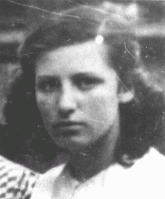
-
Sabina Low (Green)
ID CardSabina was one of four children born to a Jewish family in the Polish town of Ulanow. Her father was a landowner and cattle merchant in the area. The Jewish community in Ulanow was active, with many of its own organizations and a large library. Sabina attended public school in the morning and a private Jewish school in the afternoon. 1933-39: The public school was open Saturdays, but since it was the Jewish Sabbath, Sabina and her siblings didn't attend. They'd ask their Christian classmates for the…
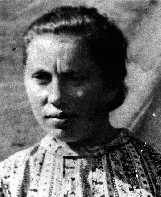
-
Edek Blonder
ID CardThe Blonder family lived in a two-room apartment in the back of a store. Edek was the third of eight children. His father eked out a meager living by tutoring students in Jewish subjects, and beginning in 1930 he worked distributing food vouchers to the poor. 1933-39: After graduating from secondary school, Edek was invited to play soccer professionally on the local Club Maccabi team, which was part of a Jewish soccer league. Club Maccabi arranged for him to attend trade school to learn cabinet making at…
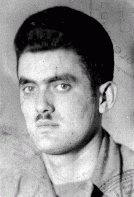
-
Jules Izrael Zajdenweber
ID CardJules grew up in a Jewish family in the industrial city of Radom, which had a large Jewish population and was known for its armaments industry. The Zajdenwebers spoke Polish and Yiddish at home. Jules' father was a textile salesman and his mother was a corset maker. Jules, whose nickname was Ulek, attended public schools in Radom and was a member of a Zionist youth organization. 1933-39: Jews weren't safe in certain neighborhoods. Some classmates at Jules's Polish state secondary school belonged to…
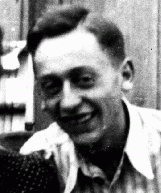
-
Sandor Alexander Bokshorn
ID CardSandor grew up in Budapest where his father was a furrier. Sandor attended a Jewish school until he was 14 and then entered a business school run by the chamber of commerce. After he graduated in 1929, he entered his father's business. Sandor then spent a year studying at the Sorbonne in Paris before entering university in Budapest to study economics. 1933-39: As a Jew, Sandor was in the minority at the university because anti-Jewish laws enacted in the 1920s had set quotas that limited Jewish applicants.…
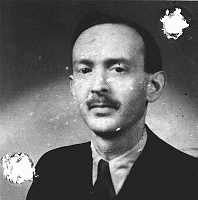
-
Frieda Altman Felman
ID CardFrieda grew up in a crowded one-room house in Sokolow Podlaski, a small manufacturing center in central Poland. Frieda's father had died when she was two years old, and her mother had then moved back to her hometown of Sokolow Podlaski, where she opened a poultry shop. The Altmans were a Yiddish-speaking, religious Jewish family, and Frieda was the youngest of four children. 1933-39: German troops entered Frieda's town on September 20, 1939. She was huddling, frightened, with family and friends in a…
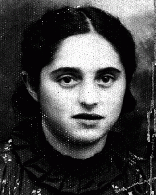
-
Charles (Karel) Bruml
ID CardCharles was born to a Jewish family in Prague, the capital of Czechoslovakia. His father owned several shoe factories there. Prague's Jewish minority enjoyed a great deal of cultural freedom because of the new democratic Republic. Though antisemitism still existed in Czechoslovakia, Prague was a relatively tolerant city. 1933-39: Charles' father's business thrived in Prague, and they lived well. Charles enjoyed painting as a child and decided to study at an art school in the city. On the morning of March…
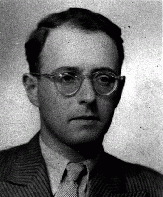
-
Fryda Litwak
ID CardFryda was one of five children born to religious Jewish parents in the industrial city of Lvov. She grew up in the same building as her paternal grandparents. Fryda attended public and private schools in Lvov, and grew up in a non-Jewish neighborhood, speaking Polish, German and Yiddish. 1933-39: When Fryda finished secondary school, she could not go to the university like her older siblings because Polish universities had instituted discriminatory quotas for Jews. In September 1939 the Germans invaded…
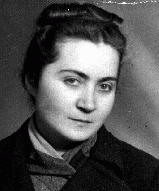
-
Thomas Elek
ID CardThomas was born to a Jewish family who moved to Paris when he was 6. His father's outspoken criticism of the fascist government and his affiliation with the Hungarian Communist Party led to the family's expulsion from Hungary in 1930. With the help of his father, a professor of modern languages, Thomas quickly learned French and excelled in school. He had a special interest in poetry and music. 1933-39: Thomas's father often argued against fascism, and he was greatly disturbed when Hitler became the…
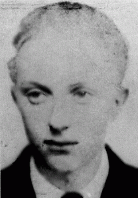
-
Ruth Gabriele Silten
ID CardGabriele was the only child of Jewish parents living in the German capital of Berlin. Her grandfather owned a pharmacy and a pharmaceuticals factory, where Gabriele's father also made his living. 1933-39: In 1938 the Nazis forced Ruth's grandfather to sell his factory and pharmacy for very little money to an "Aryan" German. After that, her father decided they should move to Amsterdam where it was safer for Jews. She was 5 years old and wanted to stay in Berlin. She didn't understand why she had to leave…
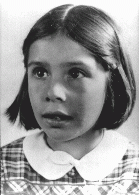
-
Fritz Silten
ID CardFritz was the youngest of two sons born to a Jewish family in the German capital of Berlin. In the late 1920s he earned a doctorate in chemistry and pharmacy. In 1931 he married Ilse Teppich, and in 1933 the couple had a daughter, Gabriele. 1933-39: Fritz worked in his father's pharmacy until 1938, when the Nazis forced them to sell the business for a fraction of its value to an "Aryan" German [Aryanization]. Leaving his parents behind was agonizing, but concern for the safety of his wife and daughter…
